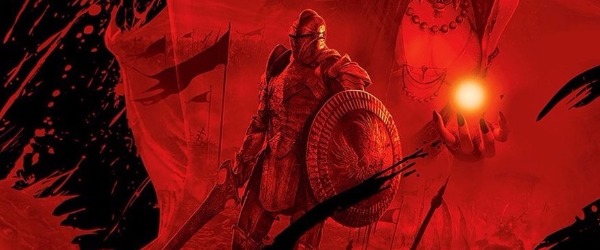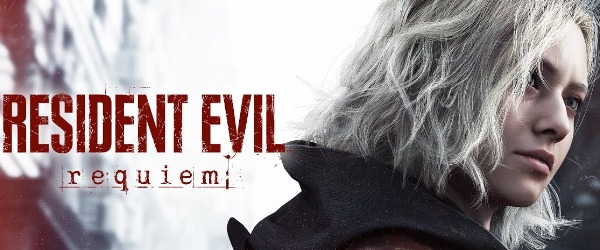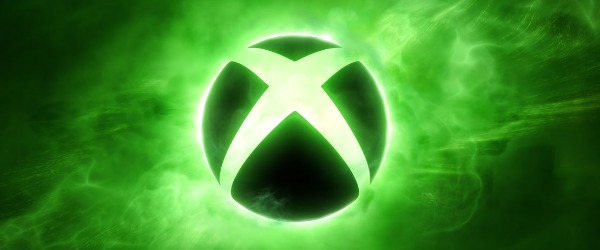
Greatest Video Game Composers: Michiru Yamane - Article
by Taneli Palola , posted on 06 July 2016 / 10,282 ViewsThe subject of today's article is someone many of you may not be familiar with, but you've more than likely heard some of her work; she has, after all, been composing music for video games for the last 28 years. Michiru Yamane is a composer who often gets overlooked when talking about great video game composers, but her work not only spans nearly three decades but deserves to be acknowledged and respected in its own right.
Michiru Yamane got into music at a very young age, composing her first piece at the age of just 11. She eventually went on to study music at high school, and then continued on that same path by attending the Aichi Prefectural University of Fine Arts and Music. After graduating, Yamane soon joined Konami and became one of the developer's in-house composers, and produced her first soundtrack for a game in 1988 (the game in question being King's Valley II) together with several other composers.
For the next few years she mostly spent time training under other already established composers while also contributing music to a variety of video game soundtracks. In 1989 - her second full year working for Konami - she created music for four different games - Nemesis 3: The Eve of Destruction, Motocross Maniacs, Space Manbow, and Ganbare Goemon 2 (the latter being her first solo work).
The following year Yamane's workload was similarly heavy; she created music for a total of five different games, one of which was a solo composition. Of the five games she worked on, two stood above the others in terms of significance. First of these was SD Snatcher, an RPG which was a sequel to Hideo Kojima's Snatcher (Kojima also wrote the sequel). The second was Teenage Mutant Ninja Turtles: Fall of the Foot Clan for the original Game Boy.
For the next two years Yamane would work in Konami's arcade division, composing music for a number of different games. These included the likes of Detana!! Twinbee (a side-scrolling shoot'em up), Vendetta (a beat'em up), and Asterix (a side-scrolling beat'em up based on the popular Asterix comics).
By this point Konami was beginning to place more trust in Yamane and her skills as a composer, and as such she was beginning to work on soundtracks for more high profile releases. The first of these higher profile titles was 1993's Rocket Knight Adventures for the Sega Genesis. While she was still mostly working in collaboration with other composers, Yamane was also gaining increasingly more respect and responsibility within Konami.
This ultimately led, in 1994, to Yamane not only composing music for Sparkster: Rocket Knight Adventures 2 and Sparkster (a sequel and a spin-off to Rocket Knight Adventures), but also for two of the most beloved video game franchises ever developed by Konami - Contra and Castlevania.
Of these two, Contra: Hard Corps on the Genesis was yet another collaboration between several different composers, including Akira Yamaoka, who would later rise to fame through the Silent Hill series. However, it was Castlevania: Bloodlines that would prove to be Yamane's most important score yet.
Bloodlines on the Sega Genesis was by far Yamane's most ambitious project to-date; not only did she create the entire soundtrack by herself, but she was also working on what was quite possibly Konami's most important franchise at that point in time. Yamane thrived off this pressure and created some notably haunting and atmospheric themes for the game that utilised very classically influenced sounds. While it isn't quite on the level of some of her later work, it was a very good soundtrack for its time, and provided some clear signs of what was to come.
The next two years were fairly quiet for Yamane; her only contribution to any game was for a Japanese-only release in 1996 called Ganbare Goemon: Uchu Kaizoku Akokingu, which is part of a series better known in the west as Mystical Ninja. However, in 1997 she would go on to create a soundtrack that is often considered one of the greatest video game scores of all time.
That game was Castlevania: Symphony of the Night, the series' most famous and arguably most highly regarded entry. Yamane spent the better part of two years working on the music for Symphony of the Night, creating an exceptionally varied soundtrack that upon the game's released received high acclaim and effectively established her as the series' main composer going forward. Yamane took influence for the game's music from a wide variety of genres, including jazz, classical music, techno, and metal.
Following the critical success of Symphony of the Night, Yamane's standing within Konami rose notably. From this point on she worked almost exclusively as the lead composer on whatever project she was assigned to. Her next two projects were somewhat smaller profile (a third-person shooter called Gungage which was released on the PlayStation, and a little known traditional RPG called Elder Gate, which was also for the PS1), but despite the relative obscurity of the games the soundtracks were excellent.
Yamane would then make her debut for yet another big Konami franchise in 2001, when she composed the music for Pro Evolution Soccer. The very next year she would also create part of the soundtrack for its sequel, Pro Evolution Soccer 2. In addition, Yamane contributed one track to DDRMAX Dance Dance Revolution 6thmix, and two tracks to Castlevania: Harmony of Dissonance, which marked her third contribution to the series.
Michiru Yamane's most notable work would come in 2002, when she crafted part of the soundtrack for the third installment in Konami's premiere RPG series, Suikoden. This added yet another one of the developer's headline franchises to her résumé. The title's music actually has a very different style compared to the first two games in the series and that is because the series' original composer was on maternity leave at the time.
In 2003 Yamane would compose music for two more Castlevania games; Aria of Sorrow, which saw her return as lead composer to the series after the music in Harmony of Dissonance had been poorly received, and a solo score for Lament of Innocence, for which Yamane further developed the style she had first used in Symphony of the Night. The music for both games is excellent, and in many ways it showed just how important she had become to the series.
The following year Yamane made a return to the world of Suikoden for the series' fourth installment, for which she composed nine of the game's tracks. While Suikoden IV itself received largely average reviews, the soundtrack was highly praised, with Yamane's contributions being as strong as people had come to expect from her. Her only other work that year was providing two tracks for Rumble Roses, a title which included music from 16 different music artists and composers.
2005 saw Yamane once more creating the music to not one but two different Castlevania titles. The first of these was Castlevania: Dawn of Sorrow for the DS and the second was Castlevania: Curse of Darkness for the PS2 and the original Xbox. The latter contains some of my personal favourite pieces of music from Yamane and I've linked to one particular track above. In addition to all of this Yamane also developed the score to a largely forgotten PS2 RPG called The Sword of Etheria, a mediocre game where the soundtrack is one of the few high points.
Her next two video game projects were 2006's Elebits, for which Yamane contributed just one track, and Castlevania: Portrait of Ruin, which marked her eighth time working on the series. 2007 was a slower year for her; she created just two new themes during the entire year, one for Beatmania IIDX 14: Gold and the other for Pop'n Music 15 Adventure. The latter theme was also a remix of some of her work from the Castlevania series.
2008 would turn out to be a year of change for Yamane. While she would compose for three more Konami games, including Elebits: The Adventures of Kai and Zero and most notably Castlevania: Order of Ecclesia, Yamane actually decided to leave the developer and become a freelancer in 2008. After 20 years working as a composer in the video game industry, Yamane had decided she wanted to reduce her work rate and acquire more flexibility by working from home. As a result, Order of Ecclesia was the very last Castlevania game Yamane scored.
Over the next few years Yamane would remain true to that notion, working sporadically as she adjusted to her new working style and environment. Although she would attend various live concerts featuring her music and arranged some of her work for compilation albums such as the official Castlevania music collection (released in early 2010), between 2009 and 2011 she would compose music for just two games - Mushihimesama Bug Panic (in 2010) and Otomedius Excellent (in 2011).
Yamane's next major project was the first western developed video game she had ever actually worked on. The game in question was 2012's indie fighting game Skullgirls. Yamane created over a third of the game's music and used a style strongly influenced by jazz for her compositions. Afterwards she continued her leisurely work pace, not composing any new video game music until she was contracted to arrange two pieces of music for Super Smash Bros. for Wii U in 2014.
Her thus far last video game compositions were for a game called Nightcry released in 2016, which was a psychological horror game for the PC. She is also currently scoring part of the soundtrack to another game that is set to release later this year called Monster Boy and the Cursed Kingdom.
Fans of Yamane's work, especially on the Castlevania series, should also rejoice as she will be composing music for Koji Igarashi's spiritual sequel to the Konami series, Bloodstained: Ritual of the Night. The recently-released demo already gave us a taste of her work on the game and it certainly sounds very promising. I for one am very much looking forward to hearing more of her work when the game releases sometime next year.
Over the past 28 years Michiru Yamane has established herself as one of the best composers working in the video game industry today. As I already mentioned, her name may not be among the most well-known when it comes to video game composers, but she most certainly deserves to be recognised as one of the most talented people in her field working today.
Once again, I'm sure many of you will have fond memories of listening to Yamane's music in various different games, so feel free to share your favourite songs or soundtracks below in the comments section. And, as always, thanks for reading.
More Articles
The greatest female composer of all-time as far as I'm concerned. SotN has so many memorable tracks it is difficult to name favourites. Wood Carving Patita, Dracula's Castle, The Tragic Prince and Wandering Ghosts instantly come to mind.
Yoko
but didn't downvote him cause it's his opinion
Vgchartz really makes great articles. Should take advantage of that in some shape or form.
Yamane is a musical genius as far as I'm concerned. Her work in SotN is extraordinary. It borrows elements from jazz, classical, and rock music to create something entirely unique. Each song sets the proper mood for a particular area in the castle. I can't wait to hear her work in Bloodstained.
Michiru Yamane > the rest.
Wow! I feel bad for not knowing about her even though I love SotN's OST, and the fact that she had something to do with most of the good Castlevania games. Glad to know that she is working on Bloodstained, now I know why the demo felt so familiar.






















 Essay Pro
Essay Pro